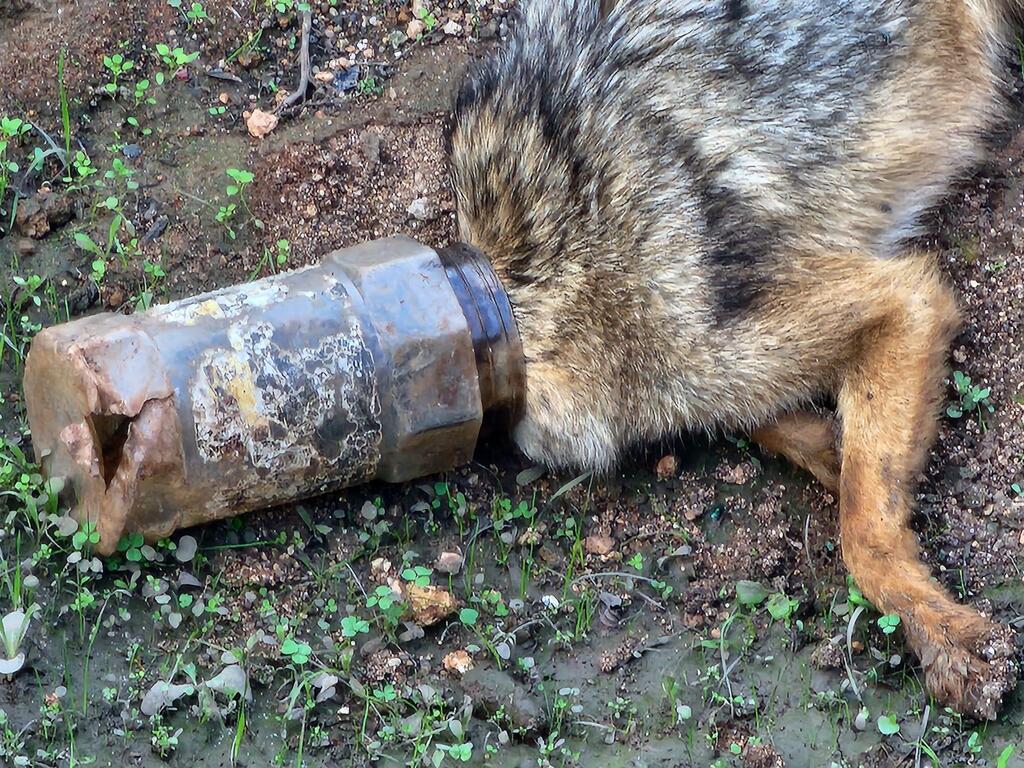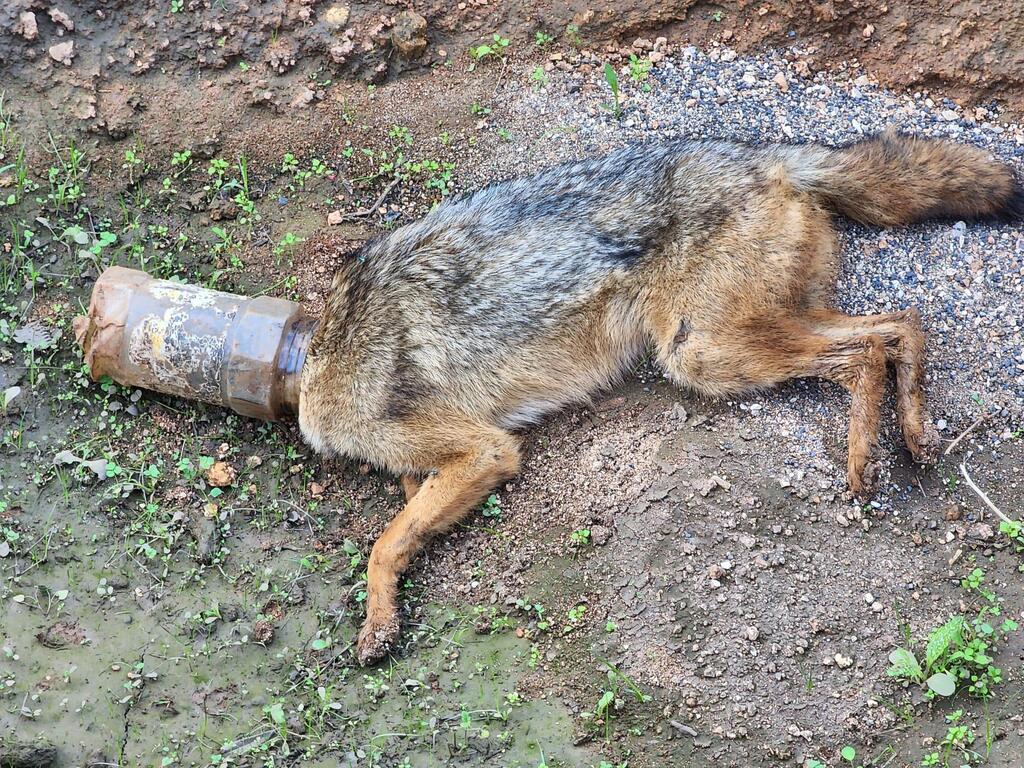Getting your Trinity Audio player ready...
A jackal has been found dead in northern Israel after his head became stuck in a discarded plastic bottle that he couldn't free himself from, nature officials said Sunday.
Ori Shapira from Shamir Research Institute was the one who discovered the animal near the Tzalmon Stream in the Upper Galilee.
"I took the picture to send a message: Stop throwing things away just because there's no trash container nearby," Shapira said. "Wildlife ends up paying a very heavy price. It's not just garbage accumulating. It's animals whose habitat has already been severely restricted due to human activities that are dying from this as well."
Ella Pasternak, a mammal expert from Tel Aviv University said that discarding waste in open areas causes significant environmental damage to wildlife and the ecologic system. "Most of the waste in non-degradable and ends up causing pollution that affects both the environment and the wildlife," she said.
"It also causes them physical damage. Dozens of Nubian Ibex die annually from eating towels and other forms of waste in southern Israel. Sea turtles and other marine life get entangled in webs and nets, as well as plastic bags constantly thrown into the water.
"This specific case, while depressing, is unfortunately quite common. In most cases the animals are alone, cannot get themselves out of that situation and end up dying."
Last July, a hedgehog was found dead when his head got stuck in a chocolate bar wrapper. In 2021, a fox had ended up in the same situation, but fortunately was rescued on time. In 2019, another fox died in similar circumstances."
According to Pasternak, sanitation in Israel isn't quite up-to-par. It causes needless deaths, and also aides in the multiplying of invasive species that shake the ecological equilibrium. "There's need from both the public and the appropriate authorities to come together to fight this problem in open areas and communities."
Israel Nature and Parks Authority Information Division Director Mazi Magnaji Moskowitz said that waste left behind by humans can be deadly to wildlife. "It's non-degradable, cannot be ingested if accidentally swallowed and gets animals stuck in situations they have no chance of getting out of. Please collect all waste and place in garbage cans before leaving parks and nature reserves."



